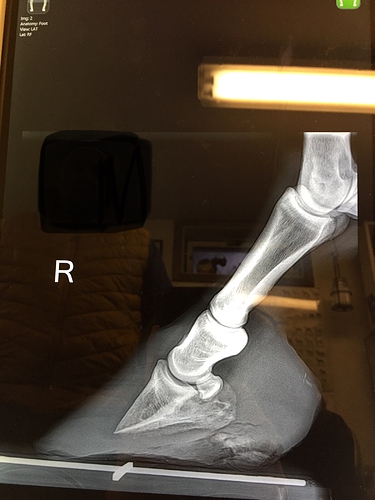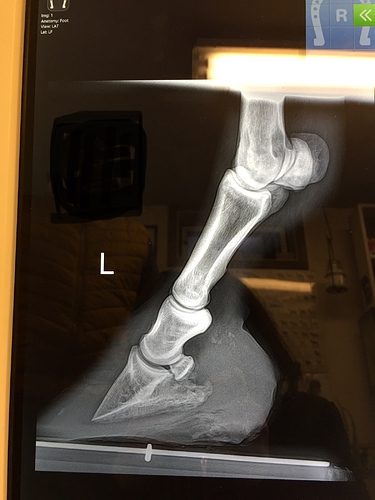Hi everyone. My horse is a 16 y/o Arab and was diagnosed with laminitis in mid February. There was 6" of snow on the ground and he has always been a “middle-of-the-road” keeper. Not an air-fern by any means. We were initially treating him for an abscess, as laminitis in the dead of winter, on not an easy keeper never crossed my radar initially.
The vet came and diagnosed him with laminitis and of course we did the whole nine yards. Lilly pads, no hard feed, soaked hay, confinement, x-rays. Vet diagnosed him with EMS even though he was not fasted at all for the test. He supposedly tested negative for Cushings/ PPID and Lymes also. My vet has been impossible. I have so many questions about my horse and his prognosis for the long-term and he has been so rude to me. But, he is almost the only horse vet around, and the only one who does emergency barn calls.
My question is, he put him on Thyro-L and when I asked him how long he would have to be on it, he snapped at me “FOR LIFE!”
I’ve been reading that the most recent research indicates that if it’s not effective in 3-6 months for weight loss, it’s probably not doing anything. My horse is only about 75# overweight, and I have weight-taped him as loosing weight so far after 1 month on Thyro-L.
Any advice from the power of COTH?
I have him in Soft-Ride boots and ditched the lilly pads that were constantly falling off and he is comfortable. The vet had him on 3 grams of bute for over a month, and he is finally off that and staying comfortable. Vet shows zero concern about ulcers and brushed my questions off completely about that. Help.



 But seriously, maybe ask your farrier for advice, she or he will have seen a lot of laminitis cases.
But seriously, maybe ask your farrier for advice, she or he will have seen a lot of laminitis cases. He is in his 50’s and twice as savvy on some horse issues as a horse vet.
He is in his 50’s and twice as savvy on some horse issues as a horse vet.